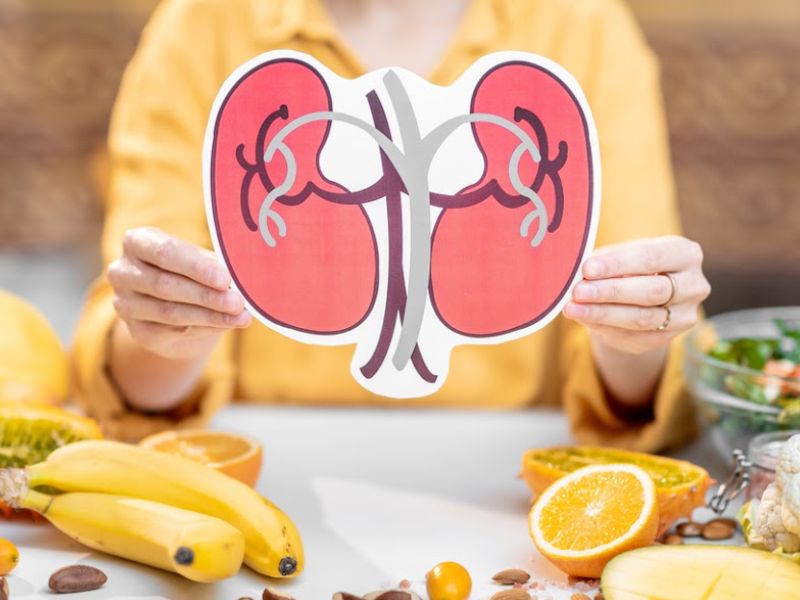A kidney transplant is a life-changing treatment that provides a new start in life for patients suffering from kidney failure. However, the journey doesn't end with the surgery. Post-operative care, particularly in terms of diet and recovery, is important in ensuring the transplant's success and the patient's overall well-being.
This blog will provide insights on five essential diet and recovery tips to help you effectively navigate the post-transplant period.
1. Follow a Kidney-Friendly Diet
After a kidney transplant, your dietary needs will change, and it's important to follow a diet that supports the health of your new kidney. This includes:
Low-Sodium Diet: Reducing sodium intake helps prevent high blood pressure, which is crucial for kidney health. Opt for fresh foods and avoid processed items that are high in salt.
Controlled Protein Intake: While protein is essential, too much can strain the new kidney. In moderation, focus on lean protein sources like chicken, fish, and plant-based proteins.
Balanced Nutrients: Ensure your diet includes a balance of vegetables, whole grains, fruits, and healthy fats to support overall health and recovery.
Following these dietary guidelines can help protect your new kidney and reduce the risk of complications.
2. Stay Hydrated, But Be Cautious
Staying hydrated is essential after a kidney transplant, but it's important to do so with care. Proper hydration supports kidney function and helps flush out toxins. However, your fluid intake might need to be regulated based on your doctor's recommendations.
Water First: Make water your primary source of hydration. Avoid sugary drinks and excessive caffeine, which can dehydrate you and strain your kidneys.
Monitor Fluid Intake: Your doctor may advise you on the right amount of fluids to consume daily. It's important to follow these guidelines to avoid overloading your kidney.
Hydration plays a key role in your recovery, but it must be balanced to avoid complications.
3. Take Medications as Prescribed
Medications, especially immunosuppressants (drugs or medicines that lower the body's ability to reject a transplanted organ), are vital parts of post-transplant care. These medications help prevent the body from rejecting the new kidney but can also affect nutrition and overall health.
Adhere to Schedules: Take your medications as prescribed, without missing doses. This ensures that your body continues to accept the new kidney.
Monitor Side Effects: Some medications can cause side effects like increased appetite, weight gain, or difficulty absorbing certain nutrients. Regular consultations with your healthcare provider can help manage these issues.
Proper medication adherence is critical to maintaining the health of your new kidney and avoiding complications.
4. Engage in Gradual Physical Activity
Recovery after a kidney transplant isn't just about diet; physical activity plays a significant role in regaining strength and ensuring long-term health. However, it's important to approach exercise with caution.
Start Slowly: Begin with light activities such as walking, and gradually increase your activity level as your body recovers.
Listen to Your Body: Pay attention to how your body responds to exercise. If you experience pain, fatigue, or unusual symptoms, consult your doctor before continuing.
Consistency Over Intensity: Focus on regular, moderate exercise rather than intense workouts. This will help you build strength without overburdening your new kidney.
Gradual and consistent physical activity will aid in your recovery, helping you regain strength and improve your overall well-being.
5. Attend Regular Follow-Up Appointments
Regular follow-up appointments are crucial after a kidney transplant. These check-ups allow your healthcare team to track your recovery, adjust medications, and address potential issues early on.
Routine Tests: You should expect to undergo regular blood tests, urine tests, and other evaluations to ensure your kidneys are functioning properly.
Discuss Concerns: If you experience any unusual symptoms or have concerns about your recovery, don't hesitate to bring them up during these appointments. Early detection of problems can prevent serious complications.
Regular follow-up appointments are an essential part of your recovery process, helping to ensure the long-term success of your kidney transplant.
In summary, recovering from a kidney transplant requires careful attention to your diet, medication, physical activity, and follow-up care. The above five tips can support your new kidney and improve your overall health and quality of life.
If you're looking for an expert who can help you solve your questions related to kidney stones, schedule a consultation at Shree Shrinivasa Uro Care for more information about kidney stone treatment in Indiranagar.

